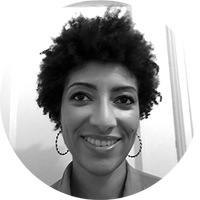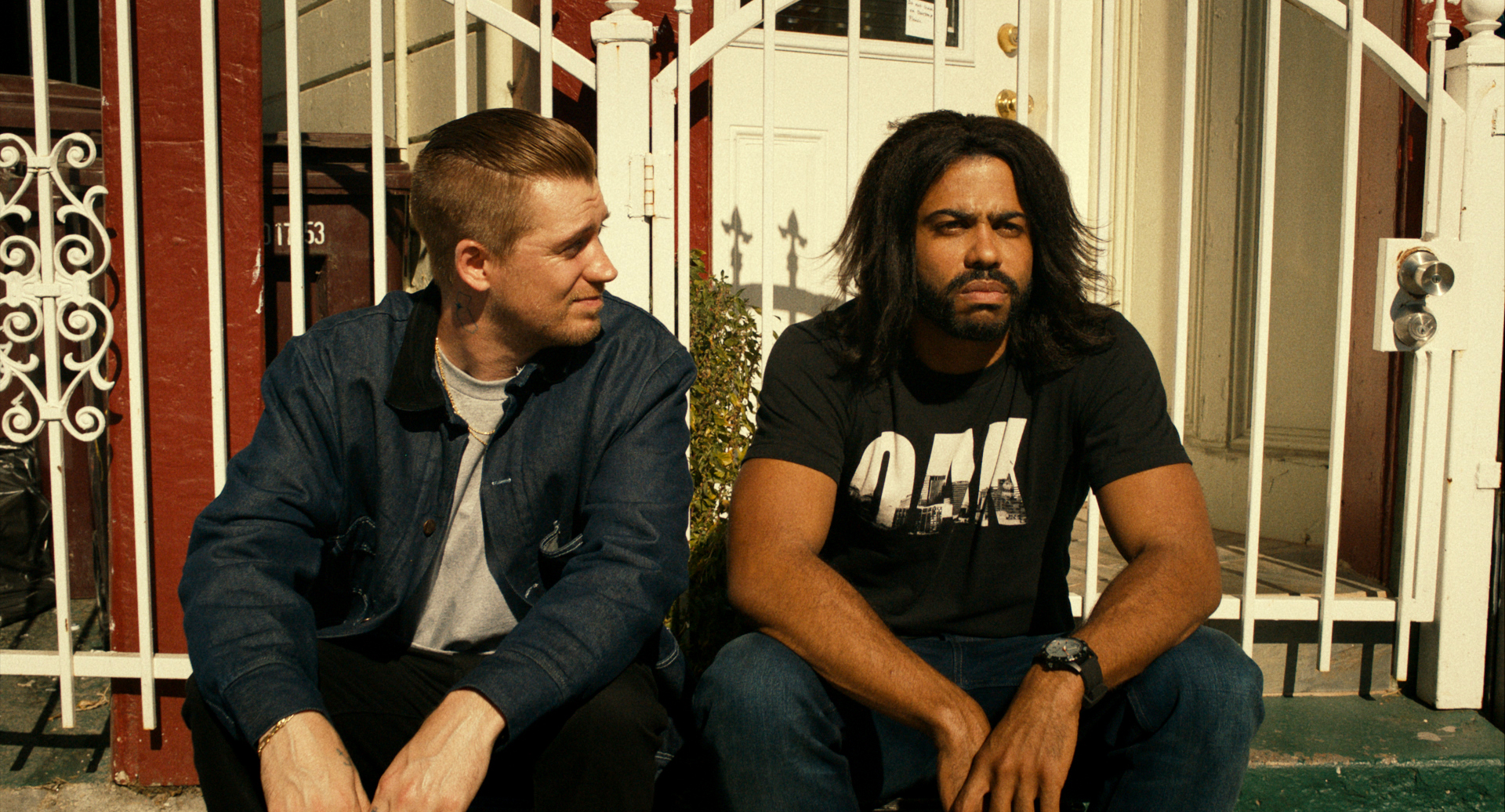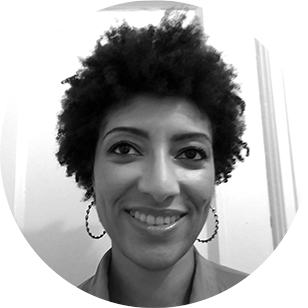How Blindspotting challenges its audience to disbelieve stereotypes
By showcasing the complex relationship between a black man and his white best friend, Blindspotting exposes the superficiality of racial molds


A free daily email with the biggest news stories of the day – and the best features from TheWeek.com
You are now subscribed
Your newsletter sign-up was successful
There's a moment in Blindspotting when, if you were just tuning in, you might assume that an unhinged black man is about to shoot a police officer in cold blood. Collin (Daveed Diggs, most famous for originating the role of Lafayette/Thomas Jefferson in Hamilton on Broadway), donning a tanktop and baggy jeans while rapping about murder and privilege, is pointing a gun at a white cop (Ethan Embry) who is shaking with fear. Collin is enraged and, despite his friend Miles (Rafael Casal) — who is white — pleading with him to stop, Collin refuses to put down his weapon.
But appearances can be deceiving. There's far more to this standoff than an uninitiated viewer would infer. In reality, this scene takes place near the end of the film — and as the plot unfolds to lead us to this breaking point, it challenges its audience to overcome long-ingrained stereotypes that a black man is automatically a menacing figure.
Blindspotting, a film co-written by Diggs and Casal and opening Friday, viscerally confronts how differently race and gentrification affect the lives of a black man and a white man — two longtime friends. It purposefully subverts some of social justice's biggest tropes to compel its audience to examine how our evolving neighborhoods affect how we see ourselves and those around us. In the scene described above, for example, the action is deliberately set up for the optics to be blurred. It forces the viewers to evaluate what brought Collin, just three days away from completing his year of parole after serving time in prison for instigating a petty fight, to the point where he'd risk his freedom for the life of one cop.
The Week
Escape your echo chamber. Get the facts behind the news, plus analysis from multiple perspectives.

Sign up for The Week's Free Newsletters
From our morning news briefing to a weekly Good News Newsletter, get the best of The Week delivered directly to your inbox.
From our morning news briefing to a weekly Good News Newsletter, get the best of The Week delivered directly to your inbox.
Viewers know the answer from earlier in the film: This is the same police officer who Collin saw shoot and kill an unarmed black man in the middle of the street with no hesitation — the same one who boldly threw him a cold glare as he left the lifeless body on the ground. Since his Oakland, California, neighborhood has been recently gentrified, Collin, who is known to bust out a few rhymes as he walks along the sidewalk, is now seen as an outsider in front of his own house — like a criminal who doesn't belong. And yet, this cop strolls onto the block, commits murder, and returns to his life as if nothing happened.
It's a frustrating thought for Collin to live with, one that is compounded by the fact that everything he knows has changed since he was released from prison. More profoundly, the things he once took comfort in now present conflicts for him. He's even looking at his best friend Miles, who regularly visited him in jail, in a different way. While it was Collin who threw the first punch in the fight that landed him behind bars, it was Miles who beat the man to a bloody pulp — and who didn't face so much as court-ordered community service. Collin bore the brunt of the punishment, and he is the one who has to live with the label of ex-convict, having lost everything (including his girlfriend Val, played by Janina Gavankar) in the process.
By contrast, Collin was by Miles' side when he married the beautiful Ashley (Jasmine Cephas Jones, who also starred in Hamilton's original Broadway run as Peggy Schuyler/Maria Reynolds), a black woman, and became a father to their son Ziggy (Ziggy Baitinger). Collin has watched Miles assume a black dialect peppered with "street" slang and walk with the swagger of a black man. It is Miles who has the confidence of a man who is supposed to be in this neighborhood, not Collin.
Collin is gripped with fear that at any moment he's going to be sent back to jail for something inconsequential. He works hard to maintain the image of a respectable black man; he makes sure he doesn't push any buttons when interacting with customers at work, and he is adamant about making it home before his 11 p.m. curfew to comply with his probation. Miles runs through the Oakland streets with reckless abandon and even brings a gun into the home he shares with his young family.
A free daily email with the biggest news stories of the day – and the best features from TheWeek.com
It's not until Collin witnesses Miles pummel someone else — this time, a black man who calls him out for appropriating the culture — that his frustration and internal rage burst. He knows that he is the one who would be hauled back to jail for yet another crime that Miles committed, and it tips him over the edge.
Once the two are safely away from the fight scene, Collin confronts Miles about his white privilege, which throws Miles off guard. Miles isn't prepared for Collin to interrogate him about why he talks the way he does, about whether he only visited him in jail out of guilt, about why he doesn't just go ahead and use the N-word since he's been pretending to be black for so long anyway. Specifically, Collin asks, why won't Miles just call Collin the N-word now, when he's so mad at Collin for leaving him in the middle of this latest fight?
Miles responds that he doesn't use that word — that he would never use that word. But he is visibly fighting the impulse to drop the slur, in the heat of his anger, in the direction of his best friend. This singular word is apparently where he draws the line.
Miles is so consumed with the daily task of cultural appropriation that he doesn't even see how it's affected Collin, how his actions have contributed to his friend being further marginalized and criminalized in a system of white supremacy — where even actual white criminals like himself, who pretend to be black, prevail over him. Though Miles says that he appropriates to survive the Oakland streets as a white man, it's a meaningless excuse that serves only to elevate himself by devaluing people like Collin. Collin knows this, and Miles tries to understand, but ultimately it is the former who has to grapple with this truth every day.
So, when we meet Collin at the home of the aforementioned police officer, he is clenched with such intense feelings of despair and utter rage that he picks up the officer's gun and aims it at him. We aren't sure whether he will actually pull the trigger, or whether he's just trying to scare the man. But we know that living in a constant state of fear and anger has cornered him into almost becoming the criminal he's been perceived to be all along.
This moment perfectly crystallizes the film's overall message: Collin is not a thug. He's not even a threat. But the fact that he's made to be one under the oppressive weight of white supremacy is the real crime.
Candice Frederick is a freelance TV/film critic living in New York City. You can find more of her work here.
